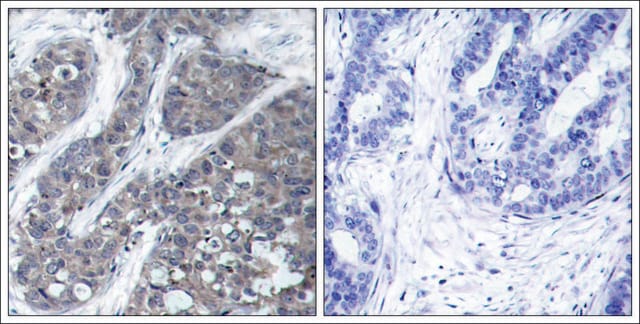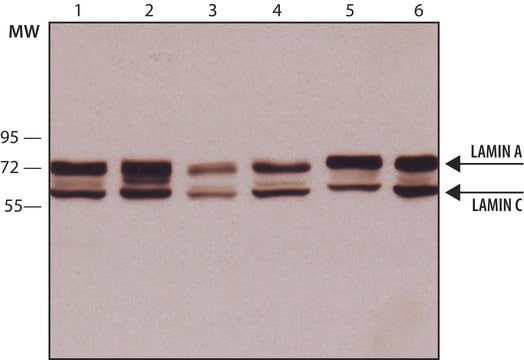P3902
Anti-Pyk2 antibody produced in rabbit
affinity isolated antibody, buffered aqueous solution
Synonym(s):
Anti-CAK-β, Anti-Proline rich Kinase 2
About This Item
Recommended Products
biological source
rabbit
Quality Level
conjugate
unconjugated
antibody form
affinity isolated antibody
antibody product type
primary antibodies
clone
polyclonal
form
buffered aqueous solution
mol wt
antigen 110-116 kDa
species reactivity
rat, mouse, human
technique(s)
immunohistochemistry (formalin-fixed, paraffin-embedded sections): 1:100 using tissue sections of human cerebellum.
immunoprecipitation (IP): 3-5 μg/mL using 150-200 μg of PC-12 rat pheochromocytoma RIPA lysate
microarray: suitable
western blot: 1:2,000 using a whole extract of LPS-stimulated P388 mouse monocyte-macrophage cells
UniProt accession no.
shipped in
dry ice
storage temp.
−20°C
target post-translational modification
unmodified
Gene Information
human ... PTK2B(2185)
mouse ... Ptk2b(19229)
rat ... Ptk2b(50646)
General description
Immunogen
Application
- immunocytochemistry
- immunohistochemistry
- western blotting
Biochem/physiol Actions
Physical form
Disclaimer
Not finding the right product?
Try our Product Selector Tool.
Storage Class Code
10 - Combustible liquids
WGK
WGK 3
Flash Point(F)
Not applicable
Flash Point(C)
Not applicable
Certificates of Analysis (COA)
Search for Certificates of Analysis (COA) by entering the products Lot/Batch Number. Lot and Batch Numbers can be found on a product’s label following the words ‘Lot’ or ‘Batch’.
Already Own This Product?
Find documentation for the products that you have recently purchased in the Document Library.
Our team of scientists has experience in all areas of research including Life Science, Material Science, Chemical Synthesis, Chromatography, Analytical and many others.
Contact Technical Service








